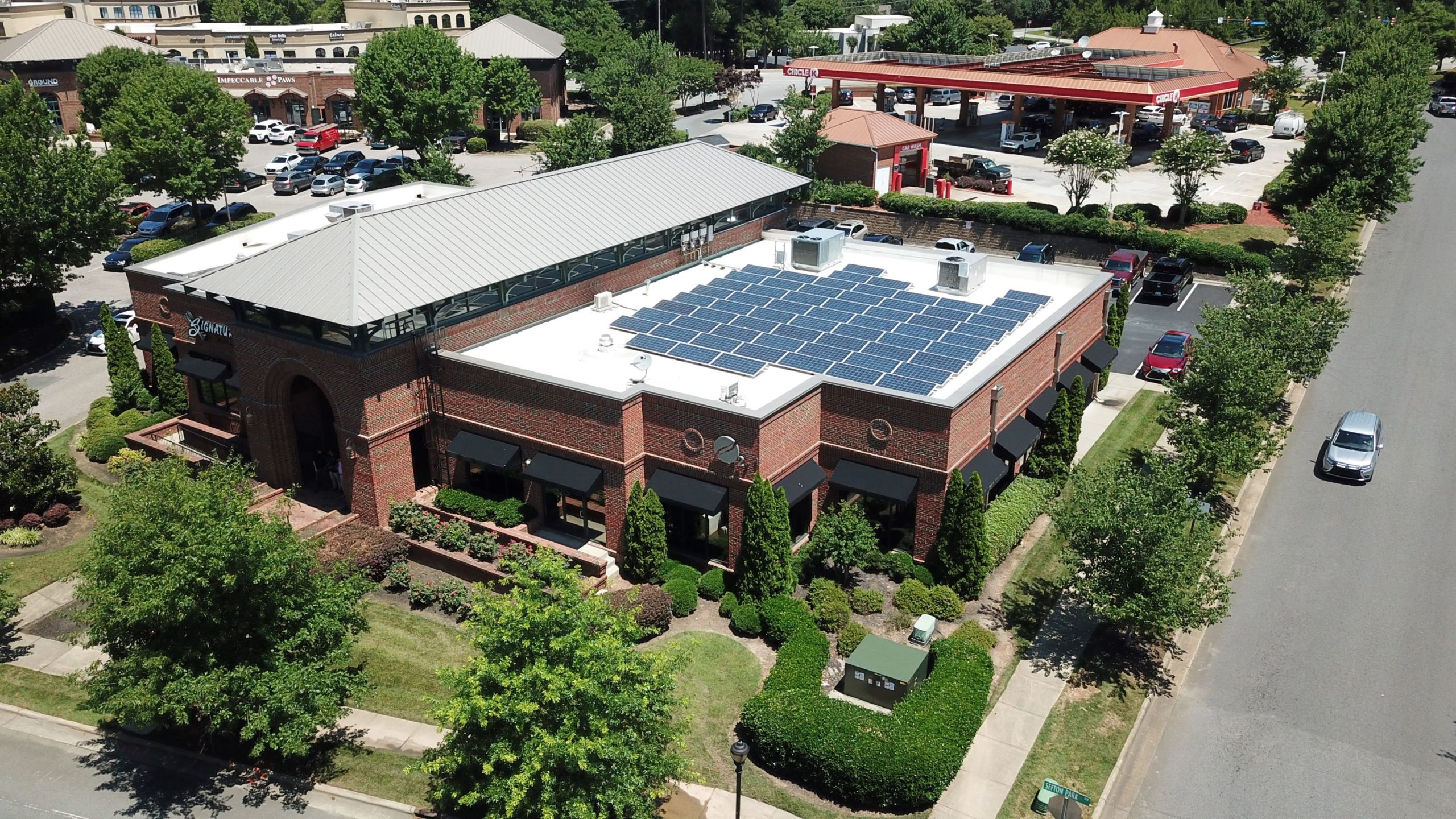C-PACE Financing Authorized by the NC Legislature Represents an Exciting Opportunity for the State

Due to a recent clean energy win at the legislature, North Carolina’s commercial property owners will soon have access to a key financing mechanism for energy-saving improvements through the authorization of Commercial Property Assessed Capital Expenditure (C-PACE). With the passage of Senate Bill 802 by the N.C. General Assembly in late June and Gov. Roy Cooper signing this bill into law on July 8th, the Economic Development Partnership of NC (EDPNC) and the NC Department of Commerce can begin developing a voluntary, statewide C-PACE program. Once the program is set up, commercial property owners will have the opportunity to access low-cost, long-term financing for qualifying energy efficiency, water conservation, renewable energy, and resiliency improvements to their properties. This tool is already being leveraged to save money and energy for property owners in 40 states and Washington, D.C.
C-PACE stands apart from traditional financing mechanisms because of its longer financing terms. Since 100% of any building upgrades or clean energy projects are paid for over the useful life of the equipment, property owners pay for improvements gradually and experience positive cash flow from the beginning. In other words, if a property owner chooses to use C-PACE over a typical loan, they will have lower annual payments. Additionally, making building upgrades that improve energy efficiency and installing clean energy technologies like solar save property owners money over time. Given that these annual loan payments are often less than energy bill savings, C-PACE presents the opportunity for significant project savings overall. As an additional bonus, the property tax assessment mechanism used for C-PACE is seen as secure and low-risk, which means that property owners can access better interest rates.
Before commercial property owners can begin submitting applications to the state’s C-PACE program, there are a few steps that must take place. First, EDPNC, North Carolina’s statewide economic development organization, is tasked with creating a C-PACE toolkit that describes guidelines, application approval criteria, and details on program administration forms. After the North Carolina Department of Commerce approves this toolkit, local governments that wish to participate will have to adopt a C-PACE resolution to authorize the use of the tool. After this, commercial property owners can begin submitting applications to the program, subject to approval by EDPNC. Once a property owner secures a financing agreement with a lender, the local government in their area voluntarily imposes a tax assessment on the property owner and a contractor can proceed with completing the planned building upgrades.
With C-PACE, commercial property owners, local businesses, and communities stand to significantly benefit from building upgrades and new clean energy projects. Property owners can utilize this tool for utility bill savings and possibly see increased property values. Communities will also experience the positive impacts of reduced emissions from energy savings and enhanced building resilience. Since property owners rely on contractors to carry out building improvements, C-PACE contributes to the local economy through increased demand for jobs in clean energy, energy efficiency, and resilience. While local communities will likely see economic development stemming from C-PACE, no taxpayer dollars will be used to finance these upgrades. Instead, property owners will pay for improvements over the course of their useful life through a property lien with fixed interest rates.
NCSEA has worked to bring C-PACE financing to North Carolina for many years, which included working with state legislators, partner organizations, local governments, and other stakeholders. We are excited to move into this next phase of assisting with this program's development. In the coming months, our team will provide updates on the development of a state C-PACE toolkit, local government resolutions, and when commercial property owners may begin submitting applications to the program. For additional information on SB802 and C-PACE in North Carolina, check out NCSEA’s new fact sheet on the topic here. Additionally, the Department of Energy’s C-PACE Toolkit, US DOE Energy and Building Market Assessment Tool, US DOE Lessons in Commercial PACE Leadership Report, PACENation, and C-PACE Alliance are all excellent resources for guidance on best practices leveraged by other states and general education on C-PACE.

